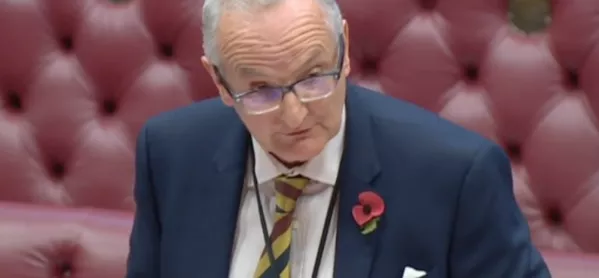Yet again, the emotive issue of school funding dominates the headlines - including those from today’s Spring Statement. The latest intervention last week from the WorthLess? campaign consisted of a letter from 7,000 teachers to around 3.5 million parents, warning of the “funding crisis” faced by schools and criticising the Department for Education for not prioritising the issue.
And yet the long-running debate over school funding is far from simple. Per-pupil funding was frozen in real terms between 2010-11 and 2015-16, followed by a real-terms cut of around 4 per cent per pupil between 2015-16 and 2017-18. However, when sixth-form funding and local authority education services are taken into account, that equates to a real-terms cut of around 8 per cent per pupil between 2010-11 and 2017-18. And while recent research from the Education Policy Institute, where I am director, finds that maintained schools overall were in deficit of around £233 million (with almost a third of maintained secondary schools in deficit), the overall level of surplus balances (at almost £1.8 billion) would be more than enough to wipe out that deficit.
What is clear is that the DfE is now in a tricky position. On one hand, it cannot publicly say that there is anything close to a school funding crisis. There has been a Conservative education secretary for almost a decade and, politically, ministers cannot concede that a crisis has emerged on their watch. Equally, as we’ve heard in the news, ministers are preparing for the spending review - a process which will require them to convince the Treasury to at least protect, if not increase, their budgets. Anything they say publicly and positively about school funding will almost certainly be used against them.
School funding: political pressure
A safer message for the DfE is on efficiency savings, with Lord Agnew himself offering to buy a school a bottle of champagne if his SWOT-team at the DfE is unable to identify any potential savings there. Indeed, DfE officials claim already to have found £35 million worth of savings from 72 schools but have refused to say how those savings were found, as the information is “commercially sensitive” and “not… in the public interest”.
One solution that the DfE is happy to publicise, however, is “Integrated Curriculum Financial Planning”. This approach essentially requires schools to balance carefully their pupil-teacher ratio, teacher contact time and curriculum offer in order to plan their budgets. It is already used by many multi-academy trusts, some of which have told us that they have saved millions of pounds by adopting this approach across their trust.
There is undoubtedly a greater need for more evidence to help to inform this debate and the EPI’s programme of work over the coming months aims to provide that evidence, by looking at how school spending patterns have changed over time, including by looking at the impact of pupil-teacher ratios, class sizes and spending on teachers and support staff. We will also aim to answer the crucial question of whether there is greater scope for schools to make further efficiency savings.
In the meantime, and to help school leaders, including finance directors in multi-academy trusts and local authorities, we are holding a one-day conference (in partnership with Tes, the Confederation of School Trusts and the Institute of Education) where we will explore the funding challenges facing schools and the extent to which Integrated Curriculum Led Financial Planning can help schools to manage their budgets more effectively. As well as presentations from EPI, MAT leaders and representatives from the Association of School and College Leaders will present case studies and analysis of this approach.
Crucially, Lord Agnew will also be there to set out the DfE’s position on school funding, giving an opportunity to hear his views first-hand and put questions to him on the future of school funding and the forthcoming spending review. Don’t expect any champagne just yet, however.
Natalie Perera is director of the Education Policy Institute
Further information on this event on 4 April, including details of how to register, can be found here





